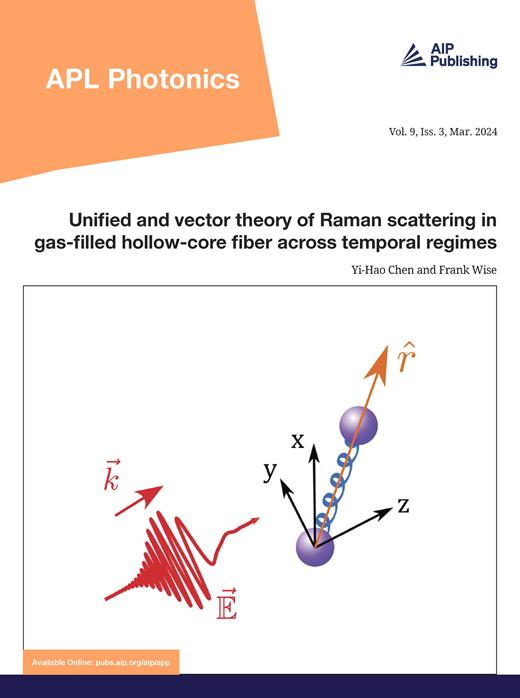Digital signal processing techniques for noise characterization of lasers and optical frequency combs: A tutorial
IF 5.3
1区 物理与天体物理
Q1 OPTICS
引用次数: 0
Abstract
Performing noise characterizations of lasers and optical frequency combs on sampled data offers numerous advantages compared to analog measurement techniques. One of the main advantages is that the measurement setup is greatly simplified. Only a balanced detector followed by an analog-to-digital converter is needed, allowing all the complexity to be moved to the digital domain. Secondly, near-optimal phase estimators are efficiently implementable, providing accurate phase noise estimation in the presence of measurement noise. Finally, joint processing of multiple comb lines is feasible, enabling the computation of the phase noise correlation matrix, which includes all information about the phase noise of the optical frequency comb. This tutorial introduces a framework based on digital signal processing for phase noise characterization of lasers and optical frequency combs. The framework is based on the extended Kalman filter (EKF) and automatic differentiation. The EKF is a near-optimal estimator of the optical phase in the presence of measurement noise, making it very suitable for phase noise measurements. Automatic differentiation is key to efficiently optimizing many parameters entering the EKF framework. More specifically, the combination of EKF and automatic differentiation enables the efficient optimization of phase noise measurement for optical frequency combs with arbitrarily complex noise dynamics that may include many free parameters. We show the framework’s efficacy through simulations and experimental data, showcasing its application across various comb types and in dual-comb measurements, highlighting its accuracy and versatility. Finally, we discuss its capability for digital phase noise compensation, which is highly relevant to free-running dual-comb spectroscopy applications.用于激光器和光学频率梳噪声表征的数字信号处理技术:教程
与模拟测量技术相比,利用采样数据对激光器和光学频率梳进行噪声表征具有诸多优势。主要优势之一是测量设置大大简化。只需要一个平衡检测器和一个模数转换器,所有的复杂性都可以转移到数字领域。其次,近乎最佳的相位估计器可以有效实现,在存在测量噪声的情况下提供精确的相位噪声估计。最后,可以对多条梳状线进行联合处理,从而计算出相位噪声相关矩阵,其中包括有关光学频率梳状线相位噪声的所有信息。本教程介绍了一个基于数字信号处理的框架,用于激光器和光学频率梳的相位噪声表征。该框架基于扩展卡尔曼滤波器(EKF)和自动微分。在存在测量噪声的情况下,EKF 是一种近乎最优的光学相位估计器,因此非常适合相位噪声测量。自动微分是有效优化 EKF 框架中许多参数的关键。更具体地说,将 EKF 和自动微分相结合,就能有效优化具有任意复杂噪声动态(可能包括许多自由参数)的光学频率梳的相位噪声测量。我们通过模拟和实验数据展示了该框架的功效,展示了它在各种类型的梳状测量和双梳状测量中的应用,突出了它的准确性和多功能性。最后,我们讨论了其数字相位噪声补偿能力,这与自由运行的双梳状光谱应用高度相关。
本文章由计算机程序翻译,如有差异,请以英文原文为准。
求助全文
约1分钟内获得全文
求助全文
来源期刊

APL Photonics
Physics and Astronomy-Atomic and Molecular Physics, and Optics
CiteScore
10.30
自引率
3.60%
发文量
107
审稿时长
19 weeks
期刊介绍:
APL Photonics is the new dedicated home for open access multidisciplinary research from and for the photonics community. The journal publishes fundamental and applied results that significantly advance the knowledge in photonics across physics, chemistry, biology and materials science.
 求助内容:
求助内容: 应助结果提醒方式:
应助结果提醒方式:


